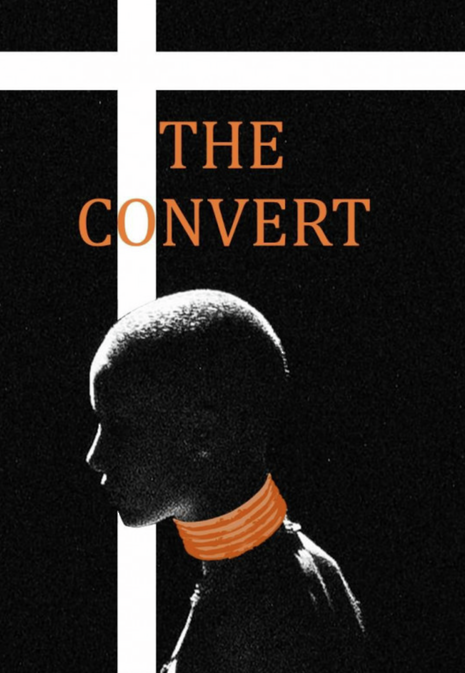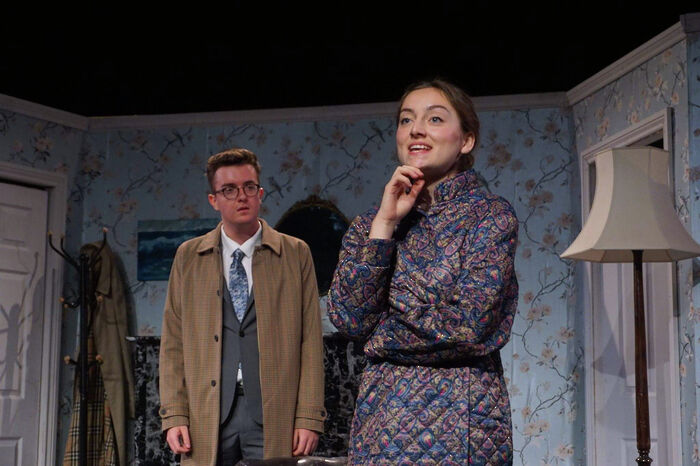The Convert deserves our attention
As many BME creatives make their debuts in Cambridge theatre with this production, Priya Edwards finds lots of talent on display in The Convert proves the need for diverse programming

It is a great oversight that the story of religious, cultural and linguistic colonialism rarely appears on the Cambridge stage. This week, Adédàmọ́lá Láoyè’s production of The Convert brings such a narrative to the ADC Theatre with a raw, emotional honesty that builds throughout the piece to a stunning climax. The pain the audience feels at the futility of the characters' resistance against the Rhodesian regime is beautifully executed by the actors and feels intensely personal. It proves that these stories are necessary and powerful.
The story follows Jekesai/Ester (Victoria Chris) who, in order to avoid being married off to an old man following the death of her father, joins the household of Chilford (Odu Salu), a black missionary dedicated to converting the ‘natives’ to Catholicism. Chilford believes wholeheartedly in the promise of the white man, and the arc of the play is just as much about his betrayal by the white people he trusted so much as it is about Jekesai/Ester finding her own voice.
Salu plays Chilford with charisma and style; he plays with the audience in the first half and lets them enjoy the moments of humour that precede the fall of the white man from his grace. Salu handles this disillusionment beautifully and his final conversation with Chris was one of the most powerful and honest performances recently seen on the ADC stage. Likewise, Chris – much like Jekesai/Ester – shines when she is finally given a chance to speak. Her performance hints at a turmoil under the surface and when it is allowed to break through, she is exceptional. One finds it very hard to believe that this is both of their first time on the Cambridge stage.
Salu and Chris are surrounded by an excellent supporting cast. Christopher Deane’s Chancellor is charming but threatening, and his turn on Jekesai is terrifying. However it is Hannah Shury-Smith, as Prudence, who gives the audience one of the most affecting moments of the show. Her speech against colonial rule following the death of her fiancée is powerful and heartbreaking in equal measure.
“The Convert has a raw, emotional honesty that builds throughout the piece and its climax is stunning”
Adédàmọ́lá Láoyè’s direction, for the most part, allowed the actors freedom to perform, although there were moments where clearer blocking could have prevented actors from standing in front of each other. His use of transition cleverly enabled the passage of time, rather than a plain and simple blackout. A movement sequence opened the show (choreographed by Izzie Clark Headley) and set the tone wonderfully, complimented by excellent lighting, designed by Deasil Waltho, which heightened the drama. However, the movement and transitions seemed to be lost as the play progressed, and the ones that existed occasionally went on too long. Láoyè could have benefited from either continuing the feature through the entire piece (thus playing with it as the pace of the play increased) or scrapping it entirely. Nevertheless, Láoyè's strength as a director lay in the honesty he was able to bring out of the cast and in his faithfulness to telling Jekesai/Ester and Chilford’s story.
Praise must also go to the costuming by Temi Longe, who created a real sense of colonial Rhodesia; impressive on what was presumably a small student theatre budget. It complimented a stand out set, designed by Stephen Ajadi, that was claustrophobic and added to the rising tension throughout the play. The symbolism of the large cross hung askew on the back wall never let the audience forget the presence and power of religion, and the destructiveness of missionary colonialism on these characters' lives.
This review cannot end without noting that this is the largest all-black cast to have been on the ADC stage. It is a cast of only seven, and an exceptionally talented one. Many of the performers have not been seen on the Cambridge stage before and it is a great shame. The Convert goes a long way to prove that theatre needs a greater variety of stories told, and told well. Creatives outside of the ‘Cambridge Theatre bubble’ need to be given a voice, more opportunities and an audience. The Convert is a raw, emotionally honest story with wonderful performances, and it deserves to be seen.
 News / Report suggests Cambridge the hardest place to get a first in the country23 January 2026
News / Report suggests Cambridge the hardest place to get a first in the country23 January 2026 News / Reform candidate retracts claim of being Cambridge alum 26 January 2026
News / Reform candidate retracts claim of being Cambridge alum 26 January 2026 News / Cambridge ranks in the top ten for every subject area in 202623 January 2026
News / Cambridge ranks in the top ten for every subject area in 202623 January 2026 Comment / Cambridge has already become complacent on class23 January 2026
Comment / Cambridge has already become complacent on class23 January 2026 News / Palestine activists project slogans onto John’s24 January 2026
News / Palestine activists project slogans onto John’s24 January 2026









